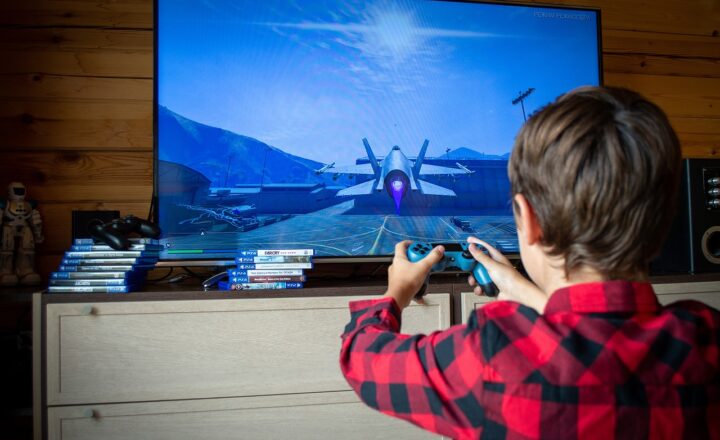The Future of AI in Gaming: How Machines Are Making Games Smarter
November 11, 2024

Artificial Intelligence (AI) is rapidly transforming the landscape of gaming, enhancing player experiences and fundamentally altering how games are developed and played. From sophisticated non-player characters (NPCs) to personalized gaming experiences, AI is at the forefront of shaping the future of the gaming industry. In this article, we delve deep into how AI is making games smarter, what the implications are for players and developers alike, and what the future holds.
1. The Evolution of AI in Gaming
AI has been part of gaming since the early days, but its role has evolved significantly. Initially, AI was primarily used to govern the simple behavior of NPCs. They followed predefined patterns and scripts, leading to predictable and limited interactions. However, with advances in technology, AI has become more dynamic and adaptable, enabling a new level of realism and engagement that players now expect.
For instance, game developers now use machine learning algorithms to create NPCs that can learn and adapt to a player’s style, making them more unpredictable and challenging. This not only makes games more enjoyable but also increases their replayability.
2. Enhancing Player Experiences with AI
The integration of AI into gaming has vastly improved player experiences in several ways:
#
Adaptive Difficulty Levels
One prominent application of AI is adaptive difficulty levels. Games can analyze player performance and adjust the game’s difficulty in real-time to maintain an optimal challenge, preventing frustration and boredom. This personalization helps keep players engaged and ensures that everyone from novices to veterans can enjoy the game.
#
Intelligent NPCs
Gone are the days of NPCs that simply followed scripts. Modern AI technologies enable NPCs to exhibit intelligent behaviors, creating more immersive gameplay. For example, AI can enable NPCs to react in believable ways to player actions, providing a more engaging narrative experience. Games like “The Last of Us Part II” utilize advanced AI techniques to enhance NPC interactions, making them feel like natural parts of the story.
#
Procedural Content Generation
AI is also making waves in content creation. Procedural generation uses algorithms to create game environments, levels, and assets that are unique to each player’s experience. This not only boosts creativity in game design but also allows for virtually limitless exploration, enhancing replay value. Games like “No Man’s Sky” showcase how effective procedural generation can create expansive worlds filled with diverse ecosystems.
3. AI and Machine Learning in Game Development
AI isn’t just enhancing player experiences; it’s also transforming the game development process. Each phase of development is becoming more informed and efficient due to AI:
#
Automated Testing and Quality Assurance
Testing games can be a time-consuming and expensive process. AI can automate various testing phases, identifying bugs and glitches much faster than human testers. By using AI-driven tests, developers can ensure higher quality releases, reducing time to market and enhancing the overall player experience.
#
Predictive Analytics for Game Design
Developers are now employing AI-driven predictive analytics to understand player behavior better. This data helps in creating more engaging content by analyzing what players enjoy, what keeps them coming back, and what drives them away. By leveraging this data, developers can make informed decisions about future updates or expansions.
4. AI in Game Personalization
With AI, personalization in gaming has reached new heights. Players desire tailored experiences that reflect their individual preferences.
#
Personalized Game Content
AI algorithms can adapt elements of the game based on player choices, providing customized storylines, quests, and even game endings. This degree of personalization can lead to players feeling more connected to the gaming world and its characters.
#
Recommendation Engines
Much like streaming services that recommend shows and movies based on viewing habits, games too can utilize AI to recommend in-game content, updates, or complementary games to players. By analyzing behavior patterns, AI ensures that players remain engaged and invested in their gaming experiences.
5. Ethical Implications of AI in Gaming
As exciting as AI in gaming is, it brings several ethical concerns that must be addressed:
#
Data Privacy
Many AI systems collect vast amounts of player data to function effectively. This raises questions about how this data is stored, used, and protected. Developers must ensure transparency and consent regarding data usage to foster trust among their player base.
#
Bias in AI Algorithms
AI systems can inadvertently perpetuate biases present in their training data. In gaming, this can manifest as non-representative character depictions or unequal interactions. Developers have a responsibility to ensure their AI systems promote inclusivity and diversity.
6. The Future of AI in Gaming
Looking ahead, the future of AI in gaming appears to be bright and filled with possibilities. As technology continues to evolve, we can anticipate:
#
Virtual Reality (VR) and Augmented Reality (AR) Integration
AI is likely to play a critical role in enhancing VR and AR experiences. By allowing for real-time interactions and responses in immersive environments, AI can make these experiences even more engaging and realistic.
#
Brain-Computer Interfaces
The next frontier could very well be brain-computer interfaces that allow players to control games with their thoughts. AI will be crucial in interpreting these signals and translating them into in-game actions, changing the way we interact with games altogether.
Conclusion
AI is revolutionizing the gaming industry in numerous ways, from smarter NPCs to personalized gaming experiences. As we continue to embrace these technologies, the boundaries of what games can achieve will expand dramatically. While challenges lie ahead, particularly regarding ethics and data privacy, the overall impact of AI in gaming is poised to create thrilling and unprecedented player experiences. The future of AI in gaming is not just about making games smarter but also about enhancing the human connection to the virtual worlds we love.
Whether you’re a gamer or a developer, keeping an eye on these exciting developments is essential as they will shape the games of tomorrow!







